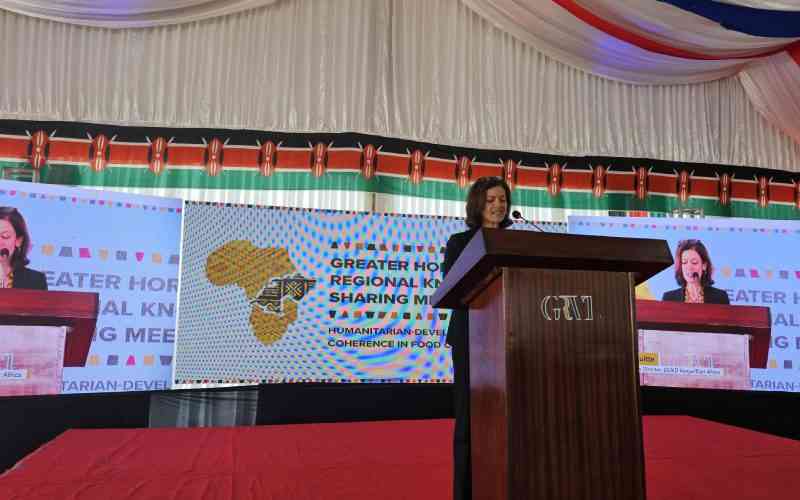×
The Standard e-Paper
Smart Minds Choose Us

Development organisations and other stakeholders will have to re-strategise their ways of working towards finding sustainable solutions to the continuous, known and unknown shocks that continue to face the Horn of Africa region.
At a time when shocks continue to increase and become unpredictable and resources remain less amid rising demand.